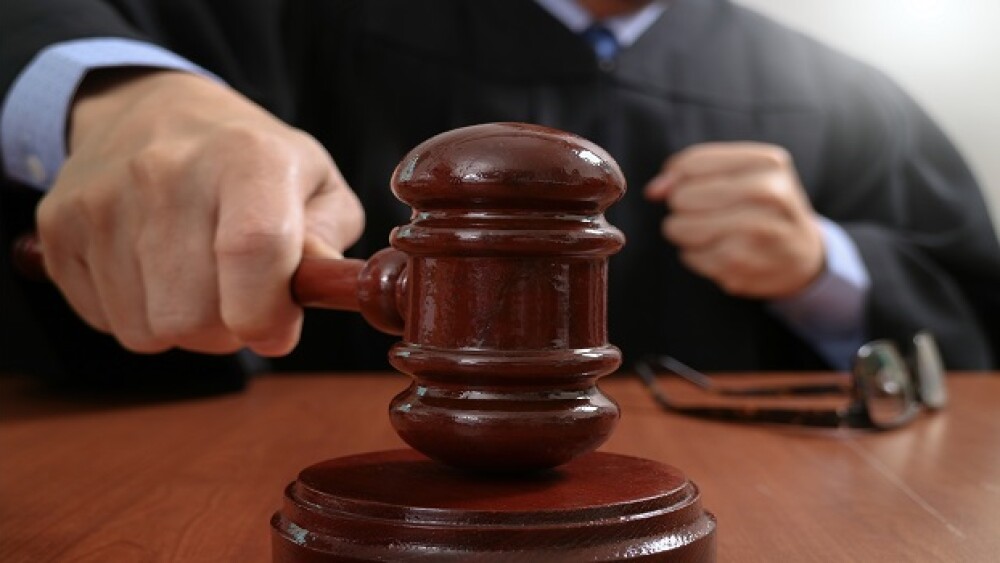U.S. District Judge in Philadelphia came down on the side of the Federal Trade Commission (FTC) in an anti-trust lawsuit filed in 2014 against AbbVie and its partner Besins Healthcare. They are ordered to pay $448 million.
U.S. District Judge Harvey Bartle in Philadelphia came down on the side of the Federal Trade Commission (FTC) in an anti-trust lawsuit filed in 2014 against AbbVie and its partner Besins Healthcare. They are ordered to pay $448 million.
The court ruled that AbbVie used “sham litigation” to illegally keep its monopoly over the testosterone replacement drug AndroGel. The $448 million is to be paid to consumers who were overcharged for the drug as a result of AbbVie’s behavior. The FTC originally sought a fine of $1.35 billion.
According to the FTC, this is the largest monetary award in a litigated FTC antitrust case.
The agency in 2014 alleged that the two companies blocked consumer access to lower-cost generic versions of AndroGel. AbbVie previously denied the allegations. The agency claimed that AbbVie and Besins filed baseless patent infringement lawsuits in 2011 against Teva Pharmaceuticals and Perrigo Company in order to delay the launch of generic versions of AndroGel.
In a statement, FTC chairman Joe Simons said, “This decision is a double victory, both for patients who rely on Androgel and for competition more broadly. It sends a clear signal that pharmaceutical companies can’t use baseless litigation to forestall competition from low-cost generics.”
The ruling was part of a non-jury trial that, according to Reuters, “tested the ability of the U.S. regulator to fight efforts by major pharmaceutical companies to prevent the sale of cheaper generic versions of their drugs.”
In his decision, Bartle wrote, “The FTC has established the actual market reality that defendants possessed monopoly power and illegally and willfully maintained that monopoly power through the filing of sham litigation.”
The FTC alleges that the two companies made a “pay-for-delay” deal with Teva, which delayed generic competition. Bartle ruled the lawsuits were baseless and that without the litigation and settle agreements involved in those cases, Perrigo would have released its generic AndroGel therapeutic in June 2013 instead of December 2014.
As a result, the judge split the liability between AbbVie and Bestins according to their royalty rates for AndroGel. According to the ruling, Besins received eight percent of U.S. net sales of the drug through March 2015, when it dropped to five percent.
AbbVie spokeswoman Toni Haubert emailed a statement to MarketWatch, saying, “We are disappointed by the ruling. We believe our conduct was lawful and the damages award is improper. We intend to appeal.”
This decision is only two weeks after AbbVie won a second jury verdict in consumer lawsuits surrounding AndroGel. On June 14, 2018, a federal jury in Chicago found against plaintiff Robert Rowley of Utah who argued that AndroGel called a blood clot he suffered in April 2013 and another one he had in 2015.
In May, a jury ruled against Arthur Myers of Arizona, although on June 13, Myers filed a motion for a new trial. But in March, a jury ordered AbbVie to pay a man injured by AndroGen $3.2 million.
DrugWatch notes, “The cases are among more than 6,000 testosterone lawsuits pending in federal court. AbbVie says it faces about 200 more cases in various state courts. The testosterone lawsuits were filed by men who blame AndroGel for heart attacks, strokes and blood clots. The AndroGel lawsuits are part of a larger multidistrict litigation (MDL) involving men who say they were harmed by testosterone replacement therapy (TRT) drugs.”
The results to date have been mixed. Two cases favored the patients. One jury ordered the company to pay $140 million. Another ordered it to pay $150 million. The larger verdict was overturned. Four others have found in favor of AbbVie.





